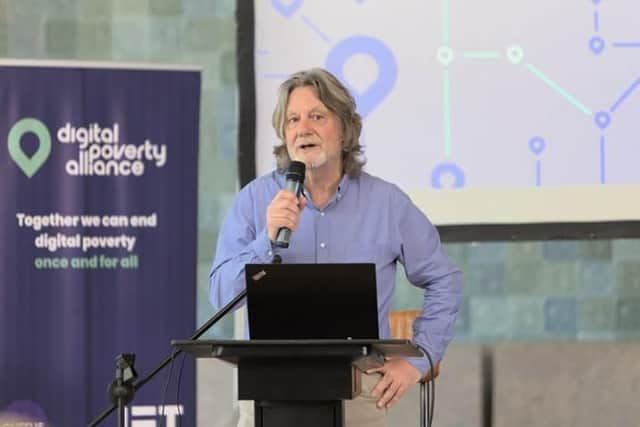National scheme aiming to end digital poverty by 2030 launches in Leeds
The event set out the core missions of the National Delivery Plan, including calls for a new digital inclusion strategy to raise awareness of digital poverty by the government, and calls for a new entitlement to provide affordable access to devices, connectivity and digital support.
The hybrid community event took place at the Leeds Central Library and virtually, featuring talks from the DPA’s CEO Paul Finnis.
Advertisement
Hide AdAdvertisement
Hide AdSpeaking at the event, Mr Finnis said: “A major aspect of the unique and revolutionary National Delivery Plan is the emphasis on support at a community level, assisting those in the areas hit hardest by a lack of access to critical digital services.


“To truly tackle and resolve the issue of digital exclusion requires a national communal effort from the government, industry and communities to support those most in need.”
Research carried out by Ofcom showed that as of March last year, around 1.7 million households in the UK (6 per cent) were without home internet access, with around 10 million adults (20 per cent) lacking foundational essential digital skills.
In Yorkshire and The Humber, 48 per cent of people said they had cut back on at least one digital device in 2022, with 44 per cent saying cutting back on devices left them feeling socially isolated.